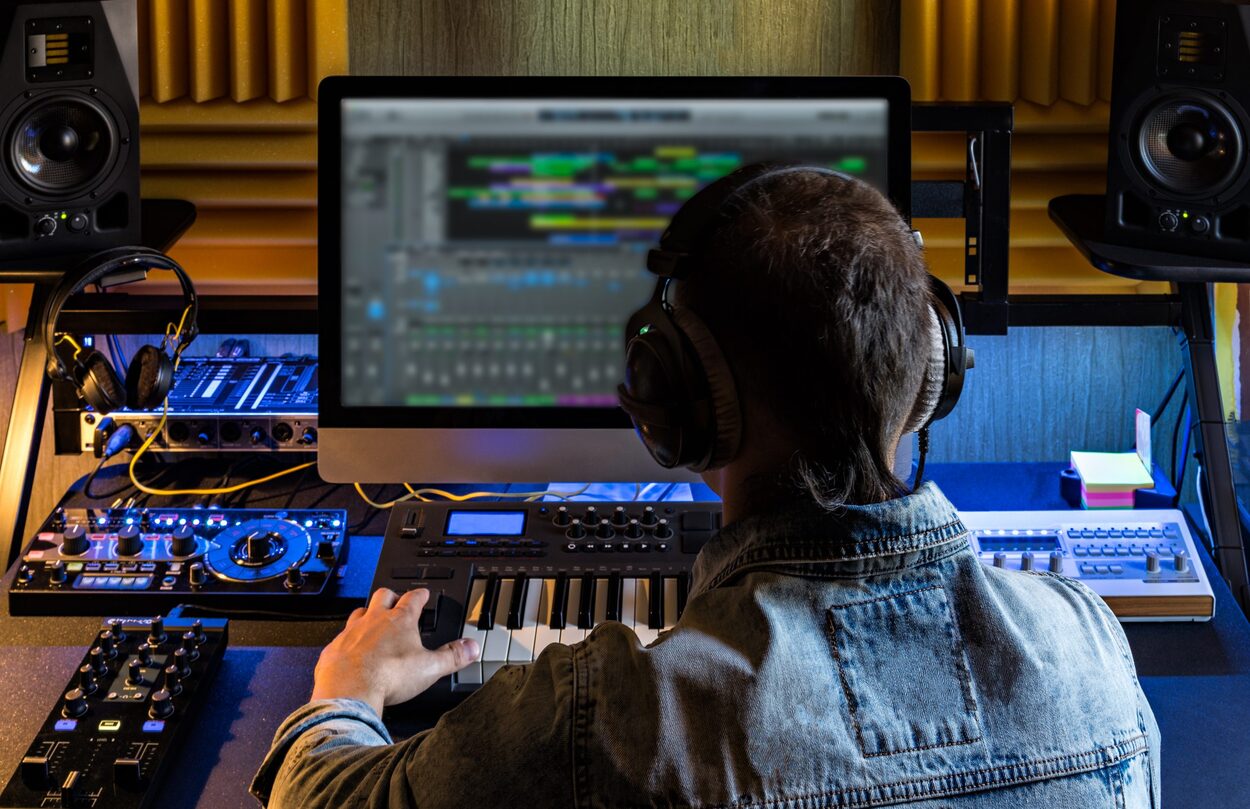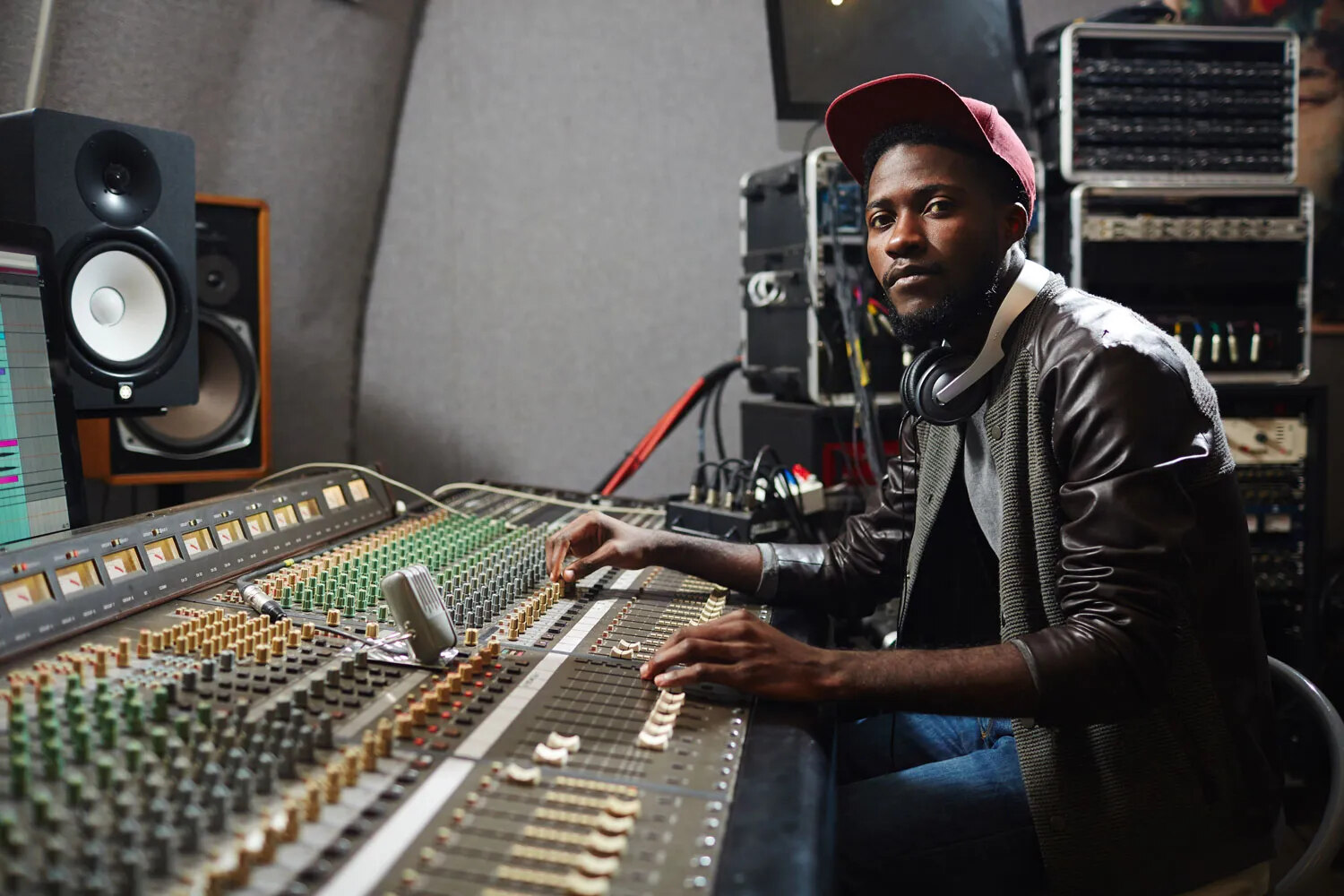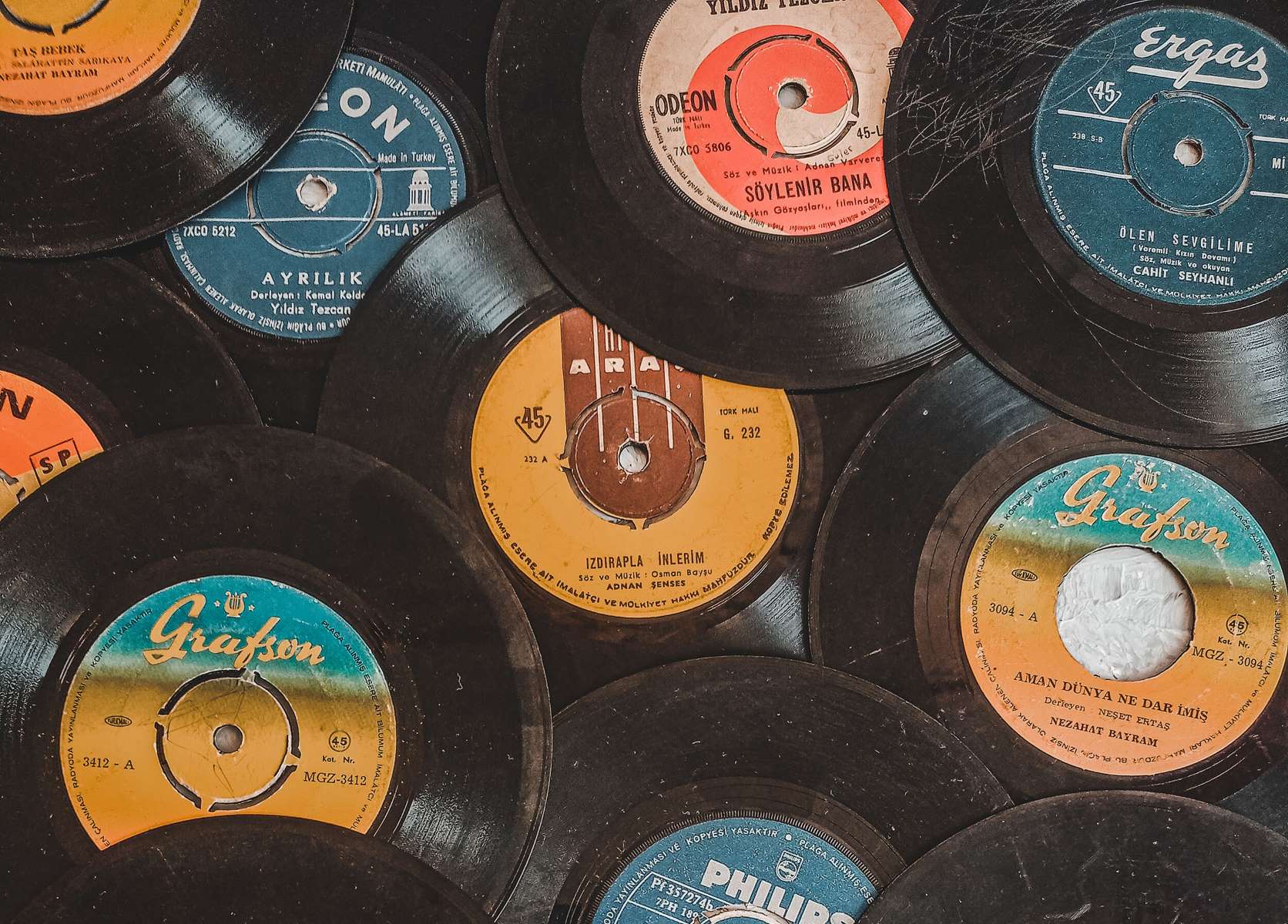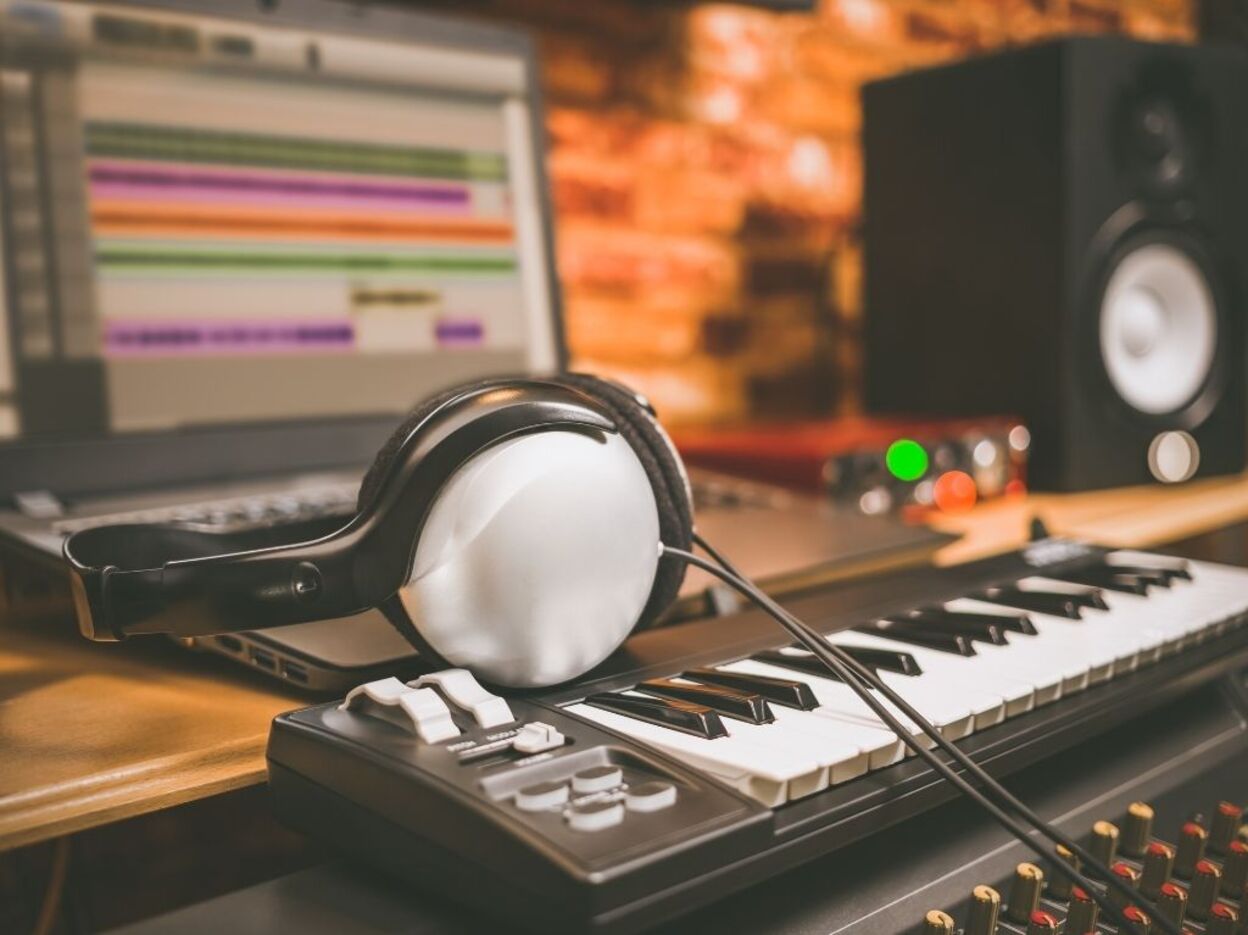Home>Production & Technology>Record Label>How To Become A Producer For A Record Label


Record Label
How To Become A Producer For A Record Label
Published: January 24, 2024
Learn the steps to become a producer for a record label and pave your way into the music industry. Get insights and tips on how to succeed in this competitive field.
(Many of the links in this article redirect to a specific reviewed product. Your purchase of these products through affiliate links helps to generate commission for AudioLover.com, at no extra cost. Learn more)
Table of Contents
- Introduction
- Understanding the Role of a Producer in a Record Label
- Developing Musical Skills and Knowledge
- Building a Network in the Music Industry
- Gaining Experience through Internships and Assistant Roles
- Learning Technical Skills and Equipment
- Understanding the Business Side of the Music Industry
- Developing a Unique Production Style
- Creating a Portfolio of Work
- Pitching Yourself to Record Labels
- Continuously Learning and Evolving as a Producer
- Conclusion
Introduction
Are you passionate about music production and dreaming of becoming a producer for a record label? As a producer, you have the opportunity to shape the sound and direction of artists’ careers, bringing their music to life and making a lasting impact on the music industry. But how do you break into this competitive field and land a role with a record label?
In this article, we will explore the steps you can take to become a producer for a record label. From developing your musical skills to building a network in the industry, we will provide you with valuable insights and tips to help you on your journey.
Becoming a producer in the music industry requires a combination of talent, determination, and strategic planning. It’s not just about having a good ear for music; it’s about understanding the technical aspects of production, having a keen sense of creativity, and staying up-to-date with the latest trends and technologies.
Whether you’re just starting out or have some experience under your belt, this article will guide you through the necessary steps to position yourself as a top candidate for a producer role at a record label. So let’s dive in and explore the exciting world of music production and record labels!
Understanding the Role of a Producer in a Record Label
Before embarking on your journey to become a producer for a record label, it’s crucial to have a clear understanding of the role and responsibilities involved. A producer is more than just someone who oversees the recording process; they play a pivotal role in shaping and defining the artistic direction of the music.
At a record label, a producer is responsible for working closely with artists to bring their musical vision to life. They collaborate with artists on song selection, arrangements, and instrumentation, offer guidance during the recording process, and ensure that the final product meets the label’s quality standards and market expectations.
Beyond the technical aspects of production, a good producer also possesses strong interpersonal and communication skills. They must be able to establish rapport and trust with artists, understand their artistic vision, and effectively communicate their creative ideas and feedback.
In addition to working directly with artists, producers in record labels often collaborate with songwriters, session musicians, engineers, and label executives. They act as a bridge between the creative and business sides of the music industry, ensuring that the final product aligns with both artistic integrity and commercial viability.
Furthermore, as a producer, you may also be involved in scouting and talent development, searching for promising artists to sign to the record label. This requires an ability to identify emerging talent, assess their potential, and envision their artistic growth within the label’s roster.
Overall, being a producer for a record label is a multifaceted role that requires a unique blend of musical expertise, creativity, and business acumen. So, as you embark on your journey, keep in mind the diverse range of responsibilities that come with the position and start preparing yourself to take on these challenges.
Developing Musical Skills and Knowledge
To excel as a producer for a record label, it is crucial to develop strong musical skills and a deep understanding of music theory. This foundation will not only enhance your ability to work with artists but also enable you to bring a unique perspective and creativity to your productions.
One essential skill for a producer is proficiency in playing at least one instrument. Whether it’s keyboard, guitar, drums, or any other instrument, being able to play an instrument will allow you to experiment with different melodies, harmonies, and rhythms, and effectively communicate with musicians during the recording process.
Furthermore, dedicating time to study music theory will provide invaluable knowledge about chord progressions, scales, and song structures. This knowledge will assist you in making informed musical choices, arranging songs effectively, and creating captivating compositions.
As a producer, staying up-to-date with current music trends and styles is also crucial. This involves actively listening to a wide range of genres, studying the production techniques employed, and analyzing the elements that make those songs successful. Understanding current musical trends will enable you to create contemporary and commercially appealing productions.
Additionally, honing your ears through ear training exercises is essential for developing your ability to identify and manipulate sound. This includes training yourself to recognize frequencies, EQ adjustments, mixing techniques, and nuances in tone and texture. Developing strong listening skills will help you achieve the desired sonic qualities in your productions.
Lastly, embracing experimentation and innovation is key to developing your own unique production style. Use your knowledge of music theory as a foundation, but don’t be afraid to push boundaries and think outside the box. Allow your creativity to flourish by exploring different genres, incorporating unconventional sounds, and experimenting with various production techniques.
Remember, developing musical skills and knowledge is a lifelong journey. Continuously seek opportunities for growth, whether through music lessons, online tutorials, workshops, or collaboration with other musicians and producers. The more you invest in enhancing your musical skills, the more confident and competent you will become as a producer in the record label industry.
Building a Network in the Music Industry
Building a strong network is crucial for success in the music industry, and as a producer aspiring to work with a record label, it becomes even more important. A strong network not only opens doors to opportunities but also allows you to learn from experienced professionals and collaborate with talented individuals.
First and foremost, immerse yourself in the local music scene. Attend concerts, open mic nights, and industry events to meet fellow musicians, artists, and industry professionals. Engage in conversations, exchange contact information, and stay connected with the individuals you meet. Building genuine relationships and connections is the foundation of a strong network.
Utilize social media platforms to expand your network beyond your local community. Connect with musicians, producers, and industry professionals online. Engage in conversations, comment on their work, and share your own projects. Social media provides a platform to showcase your skills and build relationships with people in the industry, regardless of geographical barriers.
Join professional organizations and associations related to the music industry. These organizations often host networking events, workshops, and conferences. Participate actively in these events and take advantage of the opportunities to meet like-minded individuals, learn from industry experts, and stay updated on the latest trends and developments.
In addition to attending events, actively seek out opportunities to collaborate with other musicians and artists. Offer your services as a producer, remix artist, or co-writer. By working on collaborative projects, you not only expand your portfolio but also build relationships with artists and industry professionals, who can vouch for your skills and talents.
Networking is not just about what others can offer you; it’s also about what you can bring to the table. Be willing to help and support others in the industry. Offer your expertise, feedback, and assistance whenever possible. This goodwill not only strengthens your relationships but also solidifies your reputation as a supportive and reliable professional.
Remember, building a network takes time and effort. It requires consistent engagement, follow-up, and nurturing of relationships. Attend industry events regularly, stay active on social media, and always be open to collaboration and learning from others. With a strong network in place, you will have access to a wealth of opportunities and resources that can propel your career as a producer in the record label industry.
Gaining Experience through Internships and Assistant Roles
One effective way to gain valuable experience and establish yourself as a producer in the music industry is by seeking internships or assistant roles with record labels, studios, or established producers. These opportunities provide hands-on experience, exposure to the inner workings of the industry, and valuable mentorship from experienced professionals.
Internships are typically entry-level positions that allow you to work closely with industry professionals and gain insight into the day-to-day operations of a record label. They provide an excellent opportunity to observe and learn from experienced producers, engineers, and executives.
When applying for internships, research the record labels or studios you are interested in and tailor your application to highlight your passion for their artists and projects. Be open to working on various tasks, from administrative duties to assisting with recording sessions or attending meetings. Approach each task with enthusiasm and a willingness to learn, as internships often lead to future opportunities.
If you’re unable to secure an internship, consider reaching out to established producers or music professionals in your area and inquire about assistant roles. Assistant roles give you the chance to work closely with a specific producer, observing their workflow, assisting with administrative tasks, and learning the intricacies of the production process.
While internships and assistant roles may not be glamorous, they provide invaluable insights, hands-on experience, and an opportunity to build relationships in the industry. Treat each experience as a learning opportunity and a chance to prove your dedication, work ethic, and passion for music production.
In addition to internships or assistant roles, seek out opportunities to shadow producers while they work. This could involve offering your assistance in a recording session, observing their mixing and mastering processes, or simply being present in the studio to soak in the knowledge and experience of the producer.
Remember that gaining experience takes time and patience. Stay committed, continuously seek opportunities to learn and improve your craft, and maintain a positive attitude. Your dedication and willingness to put in the work will not go unnoticed and will pave the way for future opportunities in the competitive world of music production.
Learning Technical Skills and Equipment
As a producer in the record label industry, having a strong understanding of technical skills and equipment is essential. This knowledge allows you to effectively operate recording equipment, manipulate sound, and produce high-quality music that meets industry standards.
First and foremost, familiarize yourself with digital audio workstations (DAWs) such as Pro Tools, Logic Pro, Ableton Live, or FL Studio. These software programs are the foundation of modern music production and provide a wide range of tools and features for recording, editing, arranging, and mixing music. Take the time to experiment with different DAWs and find the one that suits your workflow and preferences.
Once you have chosen your preferred DAW, devote time to mastering its features and functions. Study tutorials, watch online courses, and practice using the software with different types of music. Understanding the ins and outs of your chosen DAW will greatly enhance your productivity and efficiency as a producer.
In addition to DAW proficiency, learn about recording techniques, microphone placement, and audio signal flow. Understanding these principles will allow you to capture high-quality recordings, whether you’re working with live instruments or vocals.
Gain knowledge about mixing and mastering techniques to give your productions a polished and professional sound. Learn how to balance audio levels, apply EQ and compression, create spatial effects, and use automation to bring your mix to life. Additionally, familiarize yourself with mastering techniques to ensure that your final mix translates well across different playback systems.
While having a solid grasp of the technical aspects is crucial, it’s also important to stay updated with the latest equipment and technology. Research and familiarize yourself with various types of microphones, audio interfaces, MIDI controllers, and studio monitors. Understanding how different equipment affects the sound and production process will help you make informed decisions when setting up your studio or working with different artists.
Consider investing in quality studio headphones and reference monitors to accurately analyze and fine-tune your mixes. Having a well-treated studio space and understanding room acoustics will also greatly assist in achieving accurate monitoring and mixing results.
Remember, learning technical skills and equipment is an ongoing process. Stay curious and open to new tools, techniques, and advancements in the industry. Continuously seek opportunities to learn, attend workshops, and collaborate with other producers to expand your knowledge and refine your technical skills. The more adept you become in using the tools of the trade, the more efficient and creative you will be as a producer in the record label industry.
Understanding the Business Side of the Music Industry
As a producer in the record label industry, it’s crucial to have a solid understanding of the business side of the music industry. This knowledge will enable you to navigate contracts, licensing agreements, and revenue streams effectively, ensuring that you and the artists you work with can maximize your potential for success.
Familiarize yourself with music publishing and copyright laws. Understand the importance of registering songs with performance rights organizations (PROs) and how they collect and distribute royalties to songwriters and publishers. Additionally, learn about mechanical royalties, synchronization licenses, and other revenue streams associated with music production.
Stay informed about contract negotiation and management. Understand the terms and conditions of recording agreements, producer agreements, and publishing deals. Seek legal advice when necessary to protect your interests and ensure fair compensation for your work.
Develop knowledge of marketing and promotion strategies. Understand the role of social media, streaming platforms, and traditional media outlets in promoting music. Familiarize yourself with digital marketing techniques, including creating engaging content, utilizing analytics, and building a fan base for the artists you work with.
Stay updated with industry trends and technological advancements. Understand the impact of streaming services, changes in consumer behavior, and emerging technologies that influence how music is consumed and promoted. Being well-versed in the evolving landscape of the music industry will help you adapt and make informed decisions in your production and marketing strategies.
Build a strong network of professionals in the industry, including managers, agents, lawyers, and other producers. Surrounding yourself with knowledgeable individuals will provide insights into the industry landscape, potential collaborations, and opportunities for growth.
Lastly, maintaining a business mindset is crucial. As a producer, you are not only responsible for creating great music but also for ensuring the success of the artists you work with. This requires understanding market trends, identifying target audiences, and making strategic decisions that align with the artist’s overall career trajectory.
Remember, the music industry is a complex and ever-changing landscape. Stay informed, seek advice from professionals, and continuously educate yourself on the business aspects of the industry. By gaining a strong understanding of the business side, you can position yourself and the artists you work with for long-term success in the competitive world of record labels.
Developing a Unique Production Style
As a producer in the record label industry, developing a unique production style is crucial for standing out and making your mark in the industry. A distinct production style not only sets you apart from other producers but also becomes your unique selling point and signature sound that artists and labels seek.
One key element in developing a unique production style is self-discovery. Take the time to explore different genres, experiment with various production techniques, and identify what resonates with you the most. Discover your musical preferences and areas of expertise that set you apart from others.
Embrace your strengths and make them a focal point in your productions. Whether it’s your exceptional drum programming skills, expertise in crafting infectious melodies, or innovative use of sound design, capitalize on your unique abilities and make them a defining element of your production style.
Furthermore, draw inspiration from a wide range of sources. Listen to diverse genres of music, study different periods and eras, and explore artists from various cultural backgrounds. Incorporate elements from different musical styles into your productions, blending them in a way that creates a fresh and distinctive sound.
Experiment with different production techniques and tools. Stay curious about new software, plugins, and hardware that can enhance your creative process. Innovate and push the boundaries of traditional production methods to create a sound that is uniquely your own.
Collaboration with artists can also shape your production style. Every artist has their own artistic vision and style, and working closely with them can help you refine and evolve your approach to production. Learn to adapt to different artists’ preferences while still staying true to your unique style, creating a symbiotic relationship that brings out the best in both of you.
Don’t be afraid to take risks and break the rules. Sometimes the most groundbreaking and memorable productions come from defying conventions and embracing unconventional approaches. Be willing to step outside your comfort zone, challenge conventional wisdom, and explore new creative territories.
Continuously fine-tune and refine your production style. Seek feedback from trusted peers and industry professionals, and be open to constructive criticism. Embrace a growth mindset and never stop learning. Stay curious about new production techniques, follow industry trends, and keep evolving your sound to stay fresh and relevant.
Remember, developing a unique production style takes time, experimentation, and dedication. Be patient with yourself and embrace the journey. Let your passion and authenticity shine through your productions, and soon enough, your distinct production style will become your calling card in the record label industry.
Creating a Portfolio of Work
Creating a strong portfolio of work is essential for showcasing your skills and attracting the attention of record labels as a producer. A portfolio serves as a tangible representation of your abilities and allows potential clients and collaborators to assess your style and capabilities.
Start by selecting your best and most representative work. Choose tracks that highlight different genres, moods, and production techniques that showcase your versatility as a producer. Aim for a balance between original compositions and productions you have worked on with artists.
Ensure that the tracks in your portfolio are of the highest quality in terms of production value. Take the time to fine-tune the mixes, polish the sound, and ensure that they meet professional industry standards. It’s better to have a smaller number of top-tier tracks than a larger quantity of mediocre ones.
Consider organizing your portfolio in a cohesive and visually appealing manner. Create a professional website or an online platform where you can showcase your work. Include detailed information about each track, including the artists you have collaborated with, any notable accomplishments or awards, and any specific techniques or equipment used in the production process.
Don’t limit yourself to audio-only presentations. Consider creating visual accompaniments for your tracks, such as music videos, lyric videos, or visualizers. These visual elements can enhance the impact of your portfolio and give a deeper insight into your creative vision.
Seek opportunities to have your work reviewed or evaluated by industry professionals, such as participating in producer contests or submitting your tracks to reputable music blogs or publications for feedback. Constructive criticism and recognition from industry experts can add credibility to your portfolio and increase your visibility.
It’s also crucial to keep your portfolio up-to-date. Continuously update it with your latest and most impressive work. As you gain more experience and work with new artists, replace older tracks with fresher ones that better represent your current skills and style.
Furthermore, actively seek opportunities to collaborate with talented artists and build a diverse and impressive body of work. Collaborations not only expand your portfolio but also provide networking opportunities and open doors to new connections within the industry.
A strong portfolio not only serves as a tool for impressing record labels but also demonstrates your commitment to your craft. It shows that you are serious about your career as a producer and are constantly striving for excellence. So, invest time and effort into curating a captivating and diverse portfolio that reflects your unique talents and musical vision.
Pitching Yourself to Record Labels
Pitching yourself to record labels is a critical step in gaining recognition and securing opportunities as a producer. To effectively pitch yourself, it’s essential to have a clear and compelling narrative that highlights your unique strengths and showcases your potential as a valuable asset to the label.
Start by researching record labels that align with your musical style and goals. Identify labels that have a history of working with artists whose sound and vision resonate with your own. This targeted approach will increase the chances of capturing the attention of the right label.
Craft a concise and engaging pitch that highlights your unique selling points. Clearly articulate your musical style, production expertise, and any notable achievements or experiences that demonstrate your skills and credibility. Use compelling language and storytelling techniques to create a captivating pitch that grabs the attention of the label representatives.
In addition to the pitch itself, it’s important to have a well-prepared portfolio to support your pitch. Include a selection of your best and most representative tracks to showcase your production skills and musical range. Align your portfolio with the label’s specific preferences, tailoring the selection of tracks to match the label’s musical direction.
Demonstrate your understanding of the label’s roster and showcase how your unique abilities could complement their existing artists. Highlight any previous collaborations or notable projects that demonstrate your ability to work with diverse artists and genres.
Take the opportunity to outline your vision for working with the label. Show your eagerness to contribute creatively, collaborate with their artists, and make a significant impact on the label’s success. Demonstrate your strong work ethic, reliability, and dedication to delivering high-quality productions.
Personalize your pitch as much as possible. Address it to specific individuals within the label, rather than using generic language. Research the background and interests of these individuals to demonstrate a genuine interest in their work and an understanding of their contributions to the music industry.
Follow up on your pitch after a reasonable amount of time. Express your gratitude for the opportunity to present yourself and your work. Use this opportunity to reinforce your interest in working with the label and inquire about any further steps or additional information they may require.
Remember, pitching yourself to record labels is a competitive process. Be prepared for rejections and setbacks, but maintain a persistent and positive attitude. Keep improving your skills, expanding your network, and seeking opportunities to collaborate with artists and industry professionals. With determination and perseverance, the right opportunity with the right label will come your way.
Continuously Learning and Evolving as a Producer
As a producer in the dynamic and ever-evolving music industry, it’s crucial to prioritize continuous learning and personal growth. The willingness to adapt, embrace new technologies, and stay updated with industry trends is what sets successful producers apart. Here are some key aspects to focus on as you strive to continuously learn and evolve as a producer.
Stay informed about advancements in production techniques, software, and equipment. The music production landscape is constantly evolving, with new tools and technologies emerging regularly. Keep up with industry publications, online forums, and educational resources to stay abreast of the latest developments. Experiment with new plugins, software updates, and production techniques to expand your creative toolkit.
Seek inspiration from a variety of sources. Attend concerts, music festivals, and industry events to stay connected with the pulse of the industry and expose yourself to new sounds and styles. Engage in active listening by analyzing and deconstructing tracks from different genres and eras. Stay curious and open-minded, continuously broadening your musical horizons.
Cultivate a strong network of like-minded professionals. Connect with fellow producers, engineers, and musicians in your local community and beyond. Collaborate with others to learn from their perspectives and gain insights into different approaches to music production. Networking also provides opportunities for mentorship and feedback, allowing you to refine your skills and grow as a producer.
Invest in your own musical education. Take advantage of online courses, workshops, tutorials, and masterclasses offered by reputable institutions or industry experts. These resources can provide you with valuable insights, improve your technical skills, and expose you to new ideas and approaches.
Challenge yourself creatively by exploring different genres and styles of music. Stepping out of your comfort zone and experimenting with unfamiliar territories cultivates versatility and helps you develop a unique production voice. Pushing boundaries and embracing new sonic palettes keeps your work fresh and innovative.
Embrace feedback and critique. Seek honest opinions from trusted peers, mentors, and industry professionals. Constructive criticism can highlight blind spots, offer fresh perspectives, and spur growth. Develop a mindset that views feedback as an opportunity for improvement rather than a personal attack.
Stay up-to-date with the business side of the music industry. Understand current marketing strategies, revenue streams, and distribution platforms. Familiarize yourself with rights management, royalty collection, and licensing processes. This knowledge will help you navigate industry dynamics, negotiate contracts, and maximize the potential of your productions.
Stay resilient and adaptable. The music industry can be challenging, with ups and downs along the journey. Continuously evolving as a producer requires perseverance and the ability to adapt to changing circumstances. Learn from failures and setbacks, and use them as stepping stones to improve and refine your skills.
Finally, remember that learning and growth should be a lifelong pursuit. The music industry is constantly evolving, and to thrive as a producer, you must remain committed to developing your craft, embracing new technologies, and staying inspired. Stay hungry, stay curious, and be open to the possibilities that lie ahead.
Conclusion
Becoming a producer for a record label is an exciting journey that requires passion, dedication, and continuous growth. As you embark on this path, remember that success as a producer goes beyond possessing technical skills. It involves developing a unique production style, building a strong network, and understanding the business side of the music industry.
Take the time to develop your musical skills and knowledge, embracing both technical aspects and creative exploration. Continuously refine your craft, cultivate a signature sound, and stay abreast of industry trends and advancements. Building a portfolio of your best work will help you showcase your skills and attract the attention of record labels.
Networking plays a crucial role in your journey as a producer. Connect with a diverse range of professionals in the music industry, collaborate with artists, and seek out opportunities to learn and grow alongside your peers. The support and connections you build will contribute to your success as a producer.
Pitching yourself to record labels requires a compelling narrative that highlights your strengths and aligns with the label’s vision. Tailor your pitch to each specific label, showcase your versatility and creative approach, and provide a well-prepared portfolio that showcases your best work.
Continuously learning and evolving is a fundamental aspect of being a producer. Stay curious, embrace new technologies, seek inspiration from various sources, and don’t be afraid to step outside your comfort zone. A producer must balance technical expertise with adaptability and a willingness to push creative boundaries.
In conclusion, a career as a producer for a record label is a fulfilling and challenging endeavor. With a foundation of musical skill, a strong network, business knowledge, and continuous learning, you can position yourself as a sought-after producer in the ever-changing music industry. Embrace the journey, stay committed to your growth, and strive to make a lasting impact with your productions.











